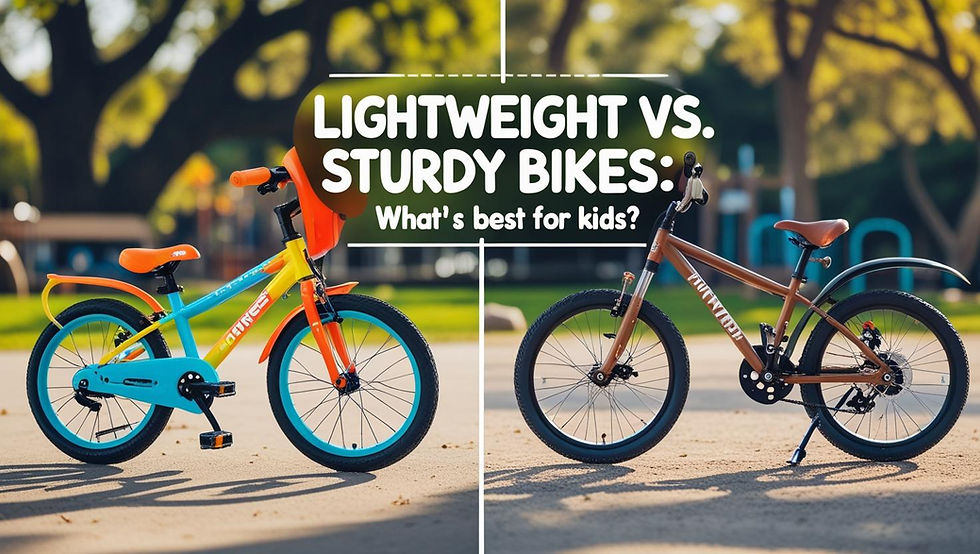Sustainability in Mountain Bike Sourcing: A B2B Imperative
- Skilful Sports
- Aug 12
- 2 min read

Sustainability is no longer a marketing trend, it has become a fundamental business requirement. In the mountain bike industry, wholesale distributors and suppliers are facing increasing pressure from retailers, government agencies, and corporate buyers to align with environmental best practices. For B2B players, embracing sustainability in mountain bike sourcing is not just a moral choice but a strategic imperative.
The Rising Demand for Sustainable Products
Today’s buyers—whether they are specialty bike retailers, outdoor gear chains, or rental operators—want products that reflect their customers’ environmental values. Mountain biking, as a sport deeply connected to nature, is particularly sensitive to sustainability concerns. Distributors who can guarantee eco-conscious manufacturing and supply chain practices are better positioned to win long-term partnerships.
Eco-Friendly Materials in Mountain Bike Manufacturing
One of the most impactful steps toward sustainability is choosing eco-friendly materials. Manufacturers are exploring recycled aluminum, responsibly sourced carbon fiber, bamboo composites, and biodegradable grips or saddles. For B2B distributors, this means working closely with suppliers who can provide verifiable sustainability certifications and consistent quality in these materials.
Reducing Carbon Footprint in the Supply Chain
Beyond the bike itself, sustainability extends to the way products are shipped and stored. Bulk shipments, optimized container loading, and reduced packaging waste can significantly lower the carbon footprint of wholesale operations. Forward-thinking distributors are also adopting local or regional manufacturing partnerships to shorten transport distances and minimize emissions.
Waste Reduction and Recycling Programs
A growing number of wholesale partners are implementing recycling programs for old parts, damaged frames, and unsold inventory. In many cases, retailers value partnerships with suppliers who can help them responsibly dispose of or repurpose obsolete products. By offering these programs, B2B distributors create a stronger service proposition and enhance their sustainability credentials.
Sustainability as a Brand Differentiator
In a competitive wholesale landscape, sustainability can set a distributor apart. Buyers are increasingly willing to pay a premium for products and services that demonstrate genuine environmental responsibility. Transparent reporting on sourcing, production, and transportation practices builds trust and positions a business as an industry leader.
Preparing for Regulatory and Market Changes
Environmental regulations around manufacturing, materials, and shipping are becoming more stringent worldwide. B2B distributors who adopt sustainable sourcing now will be better prepared for compliance requirements in the future. Proactive action also signals reliability to partners who are themselves navigating shifting regulations.
The Bottom Line
Sustainability in mountain bike sourcing is no longer optional. It is a competitive necessity that influences purchasing decisions, brand reputation, and long-term profitability. Distributors who embrace eco-friendly materials, low-impact logistics, and waste reduction programs will not only meet the expectations of their clients but also lead the way in a rapidly evolving market. Buyers can buy bikes from this suspension bike supplier to increase your chances of winning.



Comentarios